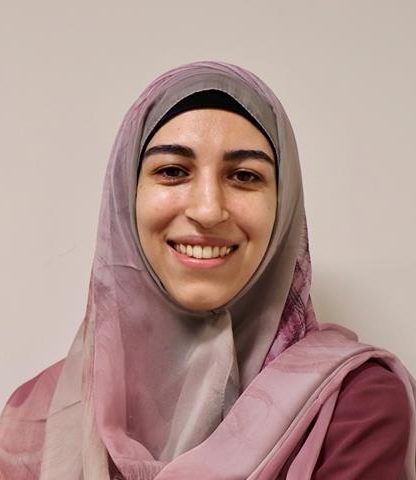
Dr. Wared Nour Eldine
Postdoctoral Researcher
Dr. Wared Nour Eldine
Postdoctoral Researcher
Educational Qualifications
BS, Biology
MSc, Animal Biology
Entity
Qatar Biomedical Research Institute
Divison
Neurological Disorders Research Center
Biography
Dr. Wared Nour-Eldine obtained her PhD degree in Immunology from the University of Paris Descartes, Paris. She has a master’s degree in Immunology-Molecular Biology and Signaling, and a bachelor’s degree in Biology from the Lebanese University. During her PhD, she worked on the theme of innate and adaptive immunity in cardiovascular diseases, where she specifically dissected the role of natural killer (NK) cells in the development/exacerbation of atherosclerosis.
During her previous studies, she established collaborations with multiple clusters to tackle questions related to inflammation, toxicity, and apoptosis pathways in different pathologies and supervised several masters and undergraduate students. She also contributed to academics through teaching the “Medical Trends in Immunology” course for honors program students.
Dr. Nour-Eldine is currently conducting her research in the Neurological Disorders Research Center (NDRC) at the Qatar Biomedical Research Institute (QBRI). Her research involves the identification of neuro-immune interactions in patients with Autism Spectrum Disorder (ASD).
BS, Biology
Lebanese University, Nabatieh, Lebanon
2008 - 2011
MSc, Animal Biology
Lebanese University, Hadat, Lebanon
2011 - 2012
MSc, Immunology (Molecular and cell signaling)
Lebanese University, Hadat, Lebanon [In collaboration with American University of Beirut, Beirut, Lebanon]
2012 - 2013
PhD, Immunology and Cell Biology
Paris Descartes University-Paris, France [In collaboration with Lebanese University, Hadat, Lebanon]
2013 - 2017
- Immunologic Reactions
- Inflammation
- Diabetes
- Cardiovascular Diseases
- Signaling
Postdoctoral Research Fellow
Department of Biochemistry and Molecular Genetics-American University of Beirut, Beirut, Lebanon
2018 - 2019
Postdoctoral Research Fellow
Gilbert and Rose-Marie Chagoury School of Medicine, Lebanese American University, Byblos, Lebanon
2019 - 2021
Instructor
Lebanese American University, Beirut-Byblos, Lebanon
2019 - 2020
- “Adiponectin Attenuates Angiotensin II-Induced Vascular Smooth Muscle Cell Remodeling through Nitric Oxide and the RhoA/ROCK Pathway.” 10.3389/fphar.2016.00086
- Genetic Depletion or Hyperresponsiveness of Natural Killer Cells do not affect Atherosclerosis Development. Circulation Research. 2017;CIRCRESAHA.117.311743
- Arterial Stenosis in the Antiphospholipid Syndrome: Update on the unrevealed mechanisms of an endothelial disease. Autoimmunity Reviews. 10.1016/j.autrev.2017.10.016.
- Selective EGF-receptor inhibition in CD4+ T cells induces Anergy and limits atherosclerosis, J Am Coll Cardiol. 10.1016/j.jacc.2017.10.084.
- Insights into the Diagnosis and Pathogenesis of the Antiphospholipid Syndrome, Semin. Arthritis Rheum, 10.1016/j.semarthrit.2018.08.004.
- Thalassemia and Malignancy: an emerging concern?, Blood Rev. 2019 Jun 22, 10.1016/j.blre.2019.06.002.
- Tobacco Cigarette Smoking Exacerbates Aortic Calcification in an Early Stage of Myocardial Infarction in a Female Mouse Model, Journal of Cellular Physiology - JCP-19-0894.R1-https://doi.org/10.1002/jcp.29075.
- Hematological malignancies in connective tissue diseases, Lupus-https://doi.org/10.1177/0961203319899986.
- SARS, MERS, COVID-19: Clinical Manifestations and Organ-System Complications: A Mini Review, ftaa033- https://doi.org/10.1093/femspd/ftaa033.
- “A glimpse into the history of the description of the Antiphospholipid Syndrome”, Lupus, https://doi.org/10.1177/0961203320947152.


